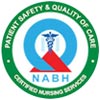
What Is A Nuclear Radiologist
December 20, 2023
A nuclear radiologist, also known as a nuclear medicine physician, is a doctor who specializes in testing and treating people using a type of radioactive materials. With this technology, they can examine muscle tissue, organs, and blood and treat problems in those areas.
Nuclear radiology uses substances called radiopharmaceuticals. The radiation in them can treat certain types of illnesses or illuminate a part of the body during a scan with a special camera. The nuclear radiologist analyzes the resulting images of where and how the substances were absorbed in the body to diagnose a medical condition.
What Does a Nuclear Radiologist Do?
On a day-to-day basis, nuclear radiologists will administer radiopharmaceuticals, do body scans to see how those substances interact with the body, view test results, and discuss their findings with patients and doctors. Depending on the findings, a nuclear radiologist’s role in a patient’s care may end there, and the person’s doctor will use the results to form a treatment plan. If, based on the testing, a patient requires radiopharmaceuticals, the nuclear radiologist will continue to be a part of the treatment plan.
Education and Training of a Nuclear Radiologist
Medical School
Nuclear radiologists must first complete 4 years of medical school after finishing their undergraduate degree. In medical school, they take courses on topics like anatomy, physiology, pharmacology, pathology, medical ethics, and laws governing medicine. They also get clinical experience through rotations in various specialties.
Residency
After graduating from medical school, nuclear radiologists enter a 5-year residency in nuclear radiology or nuclear medicine. In their first year, they focus on internal medicine or preliminary medicine. The remaining years involve working with radioactive materials and imaging technology to diagnose and treat patients.
Board Certification
Nuclear radiologists must become board certified by the American Board of Nuclear Medicine or the American Board of Radiology. Certification demonstrates their expertise in using radiopharmaceuticals and imaging scans. They must pass exams and fulfill continuing education requirements to maintain certification.
Career Outlook for Nuclear Radiologists
The field is growing faster than average due to increasing uses of nuclear technology and radiopharmaceuticals. Job prospects are very good over the next decade, especially for those willing to locate in underserved and rural regions. Nuclear radiologists enjoy Schedule B Provider status ensuring strong reimbursement for procedures.
Recent Blogs
- Factors Contributing to Infertility
- Advantages of Robotic Surgery
- What is Robotic Surgery? Conditions Where Robotic Surgery Can Be Used
- Robotic Surgical Systems
- Types of Robotic Surgeries
- Causes of Male and Female Infertility
- What Is Male Infertility? Treatments For Male Infertility
- Superfoods That Can Boost Your Chances of IVF Success
- 5 Myths Over IVF
- What Are The Do’s And Don’ts For The Embryo Transfer Process?
- What are the different Cardiology Subspecialties?
- What is the difference between Invasive, Non Invasive and Interventional Cardiology?
- What is the difference between Cardiologist and Cardiothoracic Surgeon?
- What Are the Different Types of Heart Surgery and Their Purposes?
- Types of nuclear cardiology tests
2023
- December (6)
- November (8)
- Cardiac Catheterization: When Is It Required?
- Types Of Pediatric Cardiology Test
- Tips For Preventing Heart Problems In Kids
- Advances In The Diagnosis Of Congenital Heart Disease In Children
- Signs Of Heart Problems In Children
- What Is A Pediatric Cardiologist?
- Understanding Congenital Heart Defects In Children
- Pediatric Cardiac Surgery: Types And Considerations
- September (7)
- Lifestyle Changes To Prevent Diabetes
- New Innovative Advances In Diabetes Treatment
- The Link Between Obesity And Diabetes
- Monitoring Blood Sugar At Home
- The Importance Of Regular Diabetes Check-ups
- Understanding Diabetes: Types, Causes, Symptoms & Treatment
- Lower Blood Sugar Naturally: Managing Blood Sugar Through Diet
- August (8)
- What’s The Difference Between A Neurologist And Neurosurgeon?
- Dementia: Causes, Symptoms, Diagnosis And Treatment
- Seizures: Causes, Symptoms, Diagnosis And Treatment
- Epilepsy: Causes, Symptoms, Diagnosis And Treatment
- Is Autism A Neurological Disorder? Causes, Symptoms & Diagnosis
- Pediatric Neurology: Neurological Disorders In Pediatrics
- What Are The Most Common Neurological Disorders?
- Types Of Neurosurgery: Overview, Procedure & Costs
- July (11)
- Types of Cardiac Stents
- Types of nuclear cardiology tests
- What Are the Different Types of Heart Surgery and Their Purposes?
- What is the difference between Cardiologist and Cardiothoracic Surgeon?
- What is the difference between Invasive, Non Invasive and Interventional Cardiology?
- What are the different Cardiology Subspecialties?
- What Are The Do’s And Don’ts For The Embryo Transfer Process?
- 5 Myths Over IVF
- Superfoods That Can Boost Your Chances of IVF Success
- What Is Male Infertility? Treatments For Male Infertility
- Causes of Male and Female Infertility
- April (4)
- March (1)
-

Share with us
Click Here -

Organ Transplantation
Click Here
Copyrights © 2025 PSG Hospitals. All Rights Reserved.








